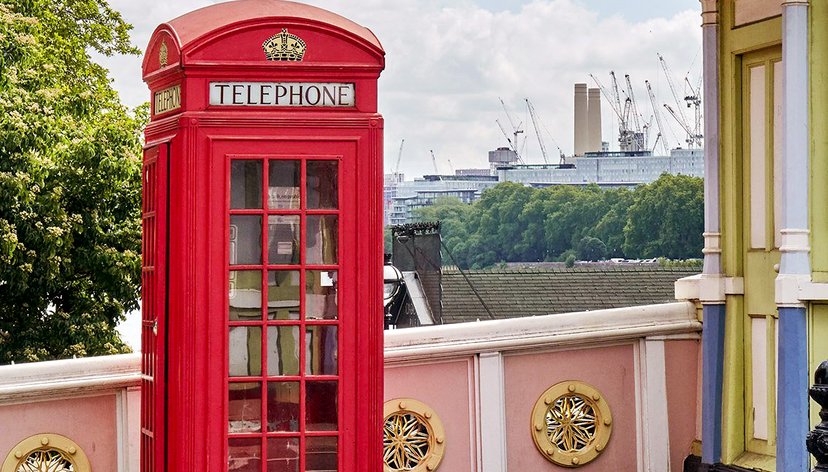MPhil/PhD application process
Jump to
Ready to apply for an MPhil or PhD progamme at the RCA? Find out about our application process here.
Applications for programmes starting in 2025...key dates" to "Applications are currently closed and will open in autumn for September 2026 entry. Register your interest for updates on admissions dates, application advice and events.
You may not apply for the same programme more than once, and can apply for a maximum of two (2) different programmes, in the 2026 admissions year.
Before you start your application
1. Identify the School or Centre most appropriate to your proposed area of study
In order for us to be able to fully review your application, please look at the Schools' research areas and the Centres' research areas before selecting which you are applying to. When making your application, in the first line of the ‘Research Proposal’ section, please indicate clearly which of the School's research area(s) your research proposal fits within.
2. Decide which degree is most appropriate for you
Applications can be made for MPhil or PhD study. All PhD students will need to undertake and pass Annual Progress Reviews and a Confirmation Examination (midway through their registration period) in order to progress to the subsequent year of study. We currently offer two modes of study: part-time and full-time. Participation in the Doctoral Training Programme is an essential part of progression requirements; this includes three one-week intensives in each year of study (or equivalent for part-time students) and a short Methods & Methodologies Course (Year 1, term 1 only)
Please note, we do not currently offer a distance-learning mode or any of our programmes of study; students are expected to attend College-wide and School-based Research Training. All annual exams are to be taken in person in one of our London campuses.
3. Consider registration periods
Full-time study
MPhil
- Minimum registration period: 2 academic years
- Maximum registration period: 3 academic years
PhD
- Minimum registration period: 3 academic years, of which at least one year should be post-Confirmation
- Maximum registration period: 4 academic years, of which at least two years should be post-Confirmation
Part-time study
MPhil
- Minimum registration period: 4 academic years
- Maximum registration period: 6 academic years
PhD
- Minimum registration period: 6 academic years, of which at least 2 years should be post-Confirmation
- Maximum registration period: 7 academic years, of which at least 3 years should be post-Confirmation
This includes time taken by the student in Continuation Status (also known as writing-up, up to a maximum of one year for both full-time and part-time students). Where a candidate is prevented because of ill-health or other circumstances from making progress with the programme of research, the registration may be suspended with the agreement of the Academic Board for Concessions and Discipline but not usually for more than a total of one year across the period of study.
How to apply
Step 1
Visit our Applicant Portal and create an account. You will need to follow the instructions to verify your email and set a password
Step 2
Complete the application form and upload your portfolio. You can save your application and retrieve it later, so you do not have to complete it all in one go.
Please only submit information via the Applicant Portal, as any additional information sent by email will not be shared with the selection panels.
You may not apply for the same programme more than once, and can apply for a maximum of two (2) different programmes in the 2025 admissions year.
You will need to submit
1. Personal information
- Your personal details, date of birth and contact information.
- Which programme(s) you are applying for.
- Predicted or previous qualifications.
- Evidence of English language proficiency if English is not your first language.
- Any accessibility needs you may have, so we can better support you.
- Personal demographic information (this is used for equity, diversity and inclusion monitoring purposes; it remains confidential and is not used as selection criteria).
- An image of your passport to verify your identification.
2. A digital portfolio
As part of your portfolio, you will be asked to upload:
- A short video, up to two minutes, of yourself talking to the camera about your personal creative journey.
- Three to five files containing your portfolio. Depending on the programme, your portfolio may include files of your work and any written descriptions, explanations or justifications required. Each programme has different requirements; details are given on individual programme pages.
3. A research proposal
The research proposal is central to your application to undertake a research degree. As a description of your proposed topic, it should enable the selection panel to evaluate the scope and importance of your project. You should read the following guidelines carefully to ensure that your proposal includes the information we need to assess your application. The proposal should be up to 1,000 words in length, including a short bibliography.
The aim of the research proposal is to demonstrate that you have a project worth doing and that this is manageable within the timescale of the degree for which you are applying. To be worth doing, your project must be well-founded, and must also make a significant contribution to understanding in its field.
To make clear that your project is manageable within the relevant period, you need to show that you understand the scale of the issues and problems you are addressing.
Your proposal should include:
Title
A title summarising the proposed research. (This will be provisional at this point, and can change).
Introduction
Identify the field of study in broad terms and indicate how you expect your research to contribute to the field. Use this section to introduce the questions and issues central to your research.
Research background and questions
Use this section to expand your introduction:
- What are the key texts and approaches in the field, and how does your proposal differ from existing lines of argument?
- What does your project contribute to existing work in the field?
- How does it extend our understanding of particular questions or topics?
You need to set out your research questions as clearly as possible, explain problems that you want to explore and say why it is important to do so. In other words, think about how to situate your project in the context of your discipline.
Research methods
This section should set out how you will achieve what you propose. This will depend very much on your research topic.
- What resources will you use or need?
- Is your study interdisciplinary?
- What theoretical resources do you intend to use and why?
- What forms of textual, historical or visual analysis are relevant to your topic/field?
- What forms of practice will you use and why?
- How will you set about answering your research questions?
Schedule of work
Use this section to show that you have a realistic plan for completion of the study within three to four years (full time).
You might want to think here about dividing the proposal into sections (not necessarily chapters at this stage) and giving an indication of how you plan to research and write up each section.
Bibliography
Include a bibliography, in a standard format such as Harvard, listing the books and articles to which you refer in the proposal.
Some of these sections will be easier to write than others at this very preliminary stage. The selectors who read your proposal know that it is a provisional statement and that your ideas, questions and approaches will change during the course of your research. You should treat the proposal as an opportunity to show that you have begun to explore an important area of study and that you have a question, or questions, that challenge and develop that area. It is also necessary to demonstrate that you can express your ideas in clear and precise English, accessible to a non-specialist.
4. Referees
You will need to name a suitable referee who is able to support your proposal. They should be someone who can reasonably affirm that you have the ability and skills to undertake a degree at this level.
A request for a reference will be automatically emailed to your referee. Please make sure that you provide your referee’s full contact details when you make your application. Applicants who wish to be considered for AHRC funding require two references.
What happens next
Once you've submitted your application, you’ll receive a confirmation email which will include your application number. This number should be quoted in all correspondence regarding your application. You can also use your application number to check the status of your application in the Applicant Portal.
Review
All applications are reviewed by a panel of academics with experience of supervising research degrees within the School.
- The selection panel will assess applications in terms of quality of proposal, readiness for study at this level, the feasibility of the project and supervisory capacity.
- Candidates are notified that they will be called for an interview or that their application has been unsuccessful (please be aware that we do not usually offer feedback at this stage).
- Interview: either in person or online.
Application outcome
Once your application has been reviewed and interview completed, you will receive one of the following application outcomes:
- a formal offer of a place
- a place on the waiting list. If you have met the entry criteria and your portfolio has been reviewed by an academic, we may not have sufficient space on your programme to make an offer to study with us as the programme is full. You will be placed on a waiting list for a place to become available
- an offer of a place on our MRes programme, which is designed especially to help transition students to full MPhil/PhD programmes
- an unsuccessful notification
If you do receive an offer, you must accept your offer and pay your deposit within three weeks to secure your place. See Accepting an offer and enrolling for more information.



